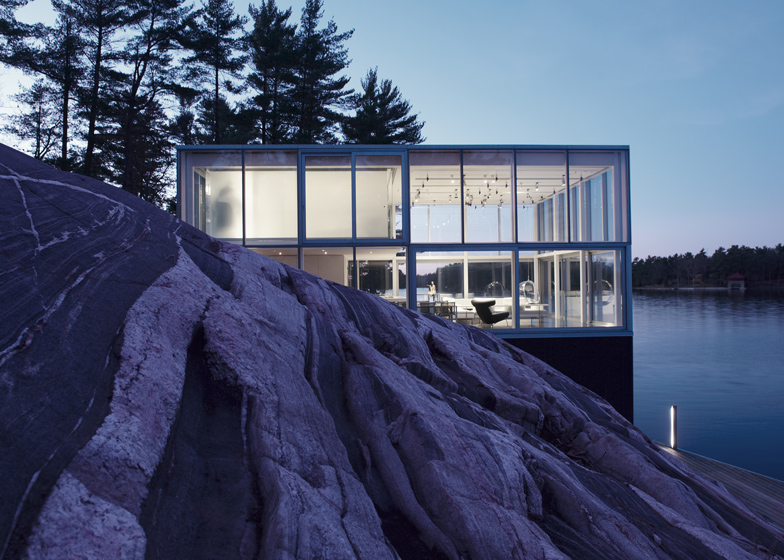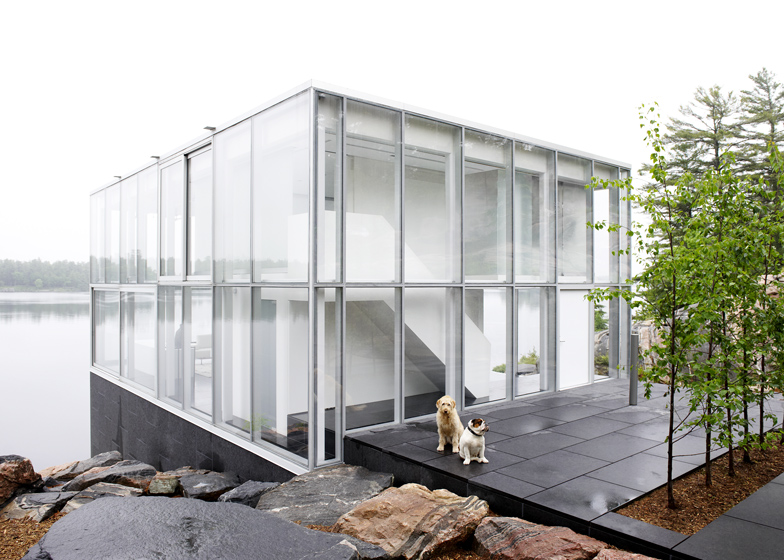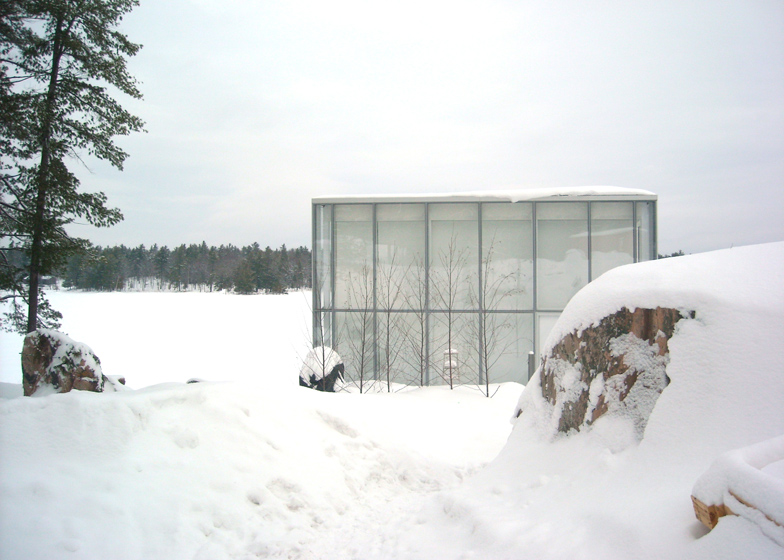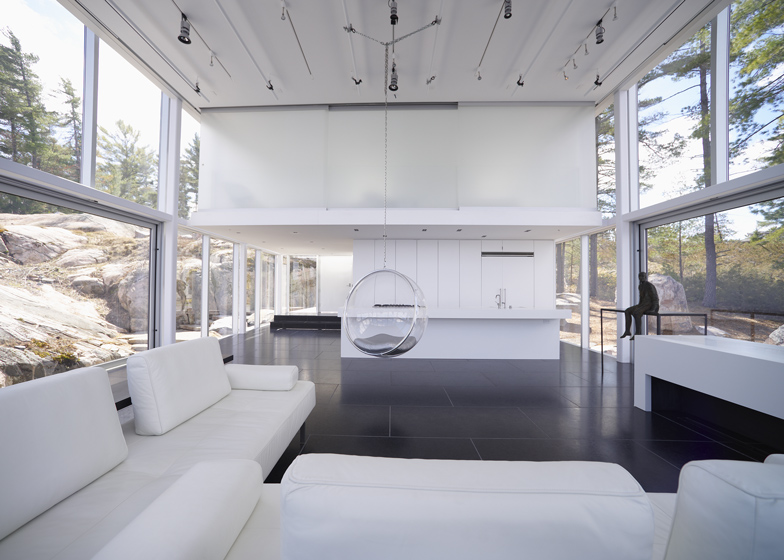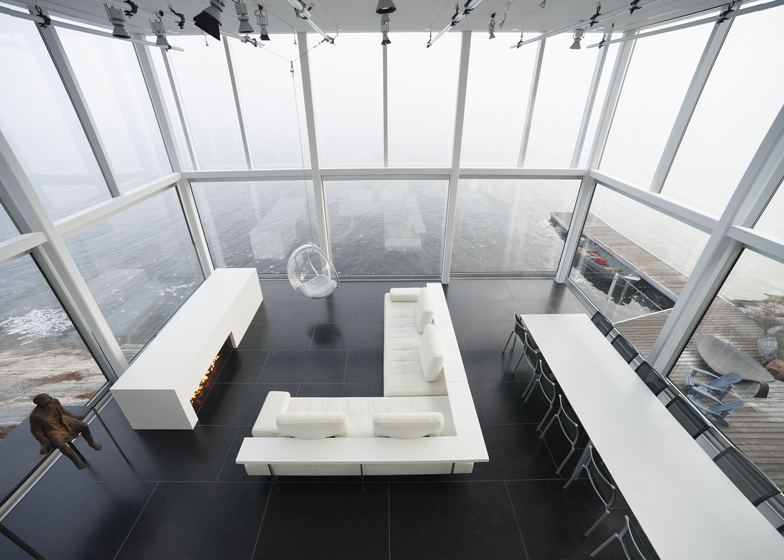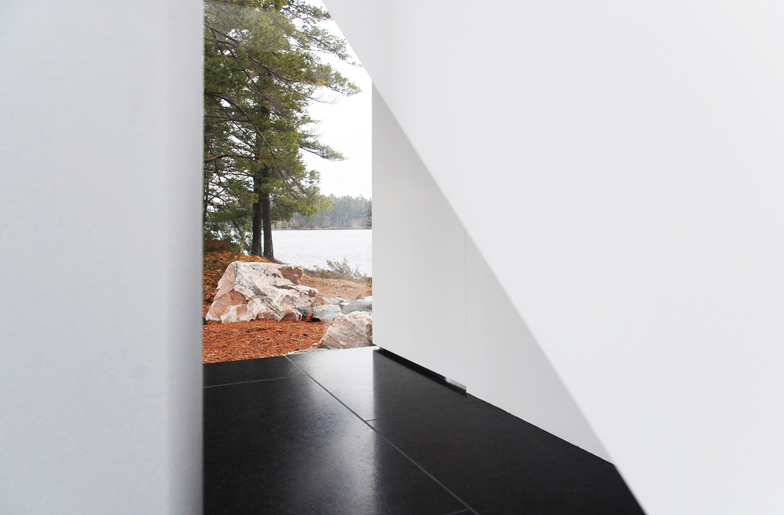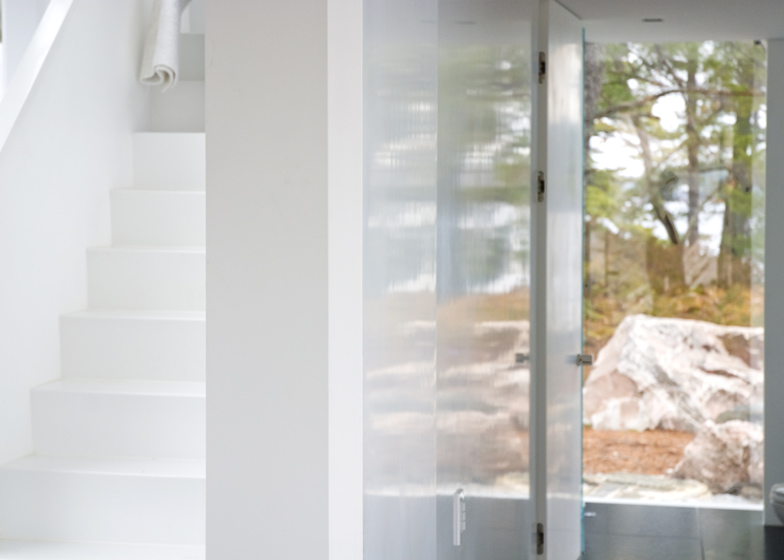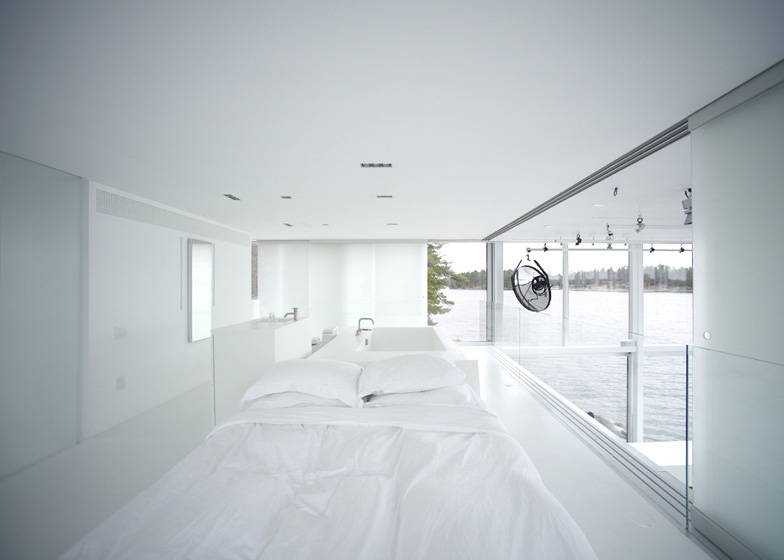Slideshow: this glass pavilion on the edge of a lake in Ontario, Canada, houses a studio, apartment and boathouse for a photographer and was designed by Toronto Studio GH3.
A dark granite plinth supports the glazed upper walls of the building, spanning the height between ground level and the water's edge.
Boats are stored inside this supporting structure, while the studio and residence are located on the upper floor and mezzanine above.
During warmer weather the glazed walls of the building can slide open for ventilation, while more sliding walls provide separation inside the house between the studio and en suite bedroom.
You can see more projects in Canada here, including a group of plywood skating shelters.
Photography is by Larry Williams.
The text below is from GH3:
Photographer’s Studio over a boat house on Stoney Lake is a reimagination of the archetypal glass house in a landscape.
A continuation of thinking about this architectural ambition, the central conceit of the glass house is reconceived through a contemporary lens of sustainability, program, site and amenity.
The compelling qualities of simple, open spaces; interior and exterior unity; and material clarity are transformed to enhance the environmental and programmatic performance of the building, creating an architecture of both iconic resonance and innovative context–driven design.
The program envisions a building as north–facing window: a photographer’s live/work studio that is continuously bathed in diffuse and undiminished natural light.
The transparent facade—a continuous curtain wall glazed in Cradle to Cradle–certified Starphire glass—becomes the essential element in a photographic apparatus to produce images unobtainable in a conventional studio.
The availability and fidelity of north–facing light in the double-height space provide the photographer with unparalleled natural illumination, while the clarity of the glazing transforms the site and surrounding vistas into a sublime, ever–changing backdrop.
The compact glass form sits at the water’s edge on a granite plinth whose matte black facade dematerializes to suspend the building, lantern-like, on the site.
The granite’s thermal mass exploits the abundant solar input, eliminating the need for active systems on winter days, while the lakefront site allows the use of a deep-water exchange to heat and cool the building year–round through radiant slabs and recessed perimeter louvers at the floor and ceiling.
Sliding panes in the glass skin—three metres wide at the ground floor, and one and a half metres wide on the mezzanine floor—allow the facade become completely porous for natural ventilation, while an individually automated blind system, white roof, and deciduous hedgerow guard against excessive solar gain.
The continuous blind system additionally serves as a second aesthetic skin, transforming the interior into an enclosed, intimate space, and the exterior into a gently reflective mirror of the surroundings.
Entry into the site is facilitated through a minimalist landscape that deploys endogenous materials while leaving the greatest portion of the site in its evocative, glacier-scoured state.
A simple granite plinth serves as threshold for the south-facing entrance, where solid program functions and vertical circulation are arranged in a narrow, efficient volume.
From the outset, the goal was too accommodate the clients programme within a small footprint, so domestic functions are integrated into a furniture-like mezzanine assembly suspended above the main space, where bedroom, bathroom and closet are coextensive, and sliding fritted glass allows the whole to be concealed from the rest of the space.
Throughout the upper and lower levels, interior partitions are clad with seamless white lacquered panels whose reflective qualities diffuse light into every part of the interior and create complex layered views through the space.


